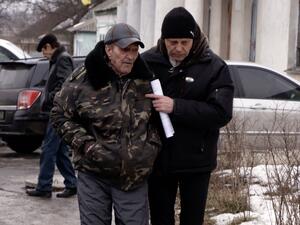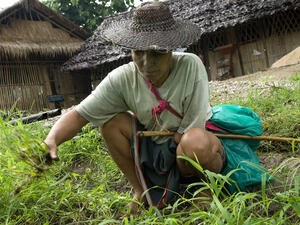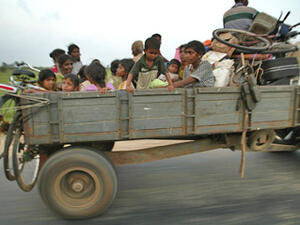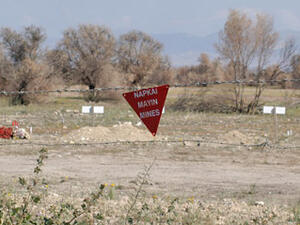Kosovo: UNHCR concerned at mine dangers
Kosovo: UNHCR concerned at mine dangers
The Assistant High Commissioner, Søren Jessen-Petersen, will give a press conference at 12:00 on the subject of UNHCR's role in the return of refugees to Kosovo. A brief update of events since yesterday's briefing:
On Thursday (June 17) around 17,000 Kosovars returned home, 3,000 from Macedonia and 14,000 from Albania. This brings the total returns during the week to almost 50,000.
Yesterday a UNHCR assessment visited Urosevac and found a relatively low level of damage in the town (10% of buildings damaged). The team saw 700-800 Serbian civilians driving out of Urosevac heading for Serbia.
A UNHCR team also made 90-minute minute aerial survey of western Kosovo yesterday aboard a KFOR helicopter. The area between Djakovica and Pec appeared devastated and deserted. Damage was extremely heavy in the region between the two towns - the team was shocked by the degree of devastation. There was also some evidence of displaced people coming down from the hills. The team could see basic shelters the people had constructed in the remote valleys where they had stayed during the war.
UNHCR continues convoys of relief aid from Skopje to Pristina. Today, 12 trucks will carry aid from various agencies to Kosovo.
UNHCR remain very worried about mine dangers and is calling in seven demining teams from Bosnia to begin demarcation of possible mine fields. KFOR has reported that there are a lot of unexploded ordnance in Kosovo as well.
WHO and UNHCR have expressed the need for more Kosovar medical staff to come back. The hospitals have a very big need for doctors. UNHCR is urging asylum countries to identify Kosovar professionals needed to rebuilld the country - doctors, engineers, administrators, judges, lawyers.









